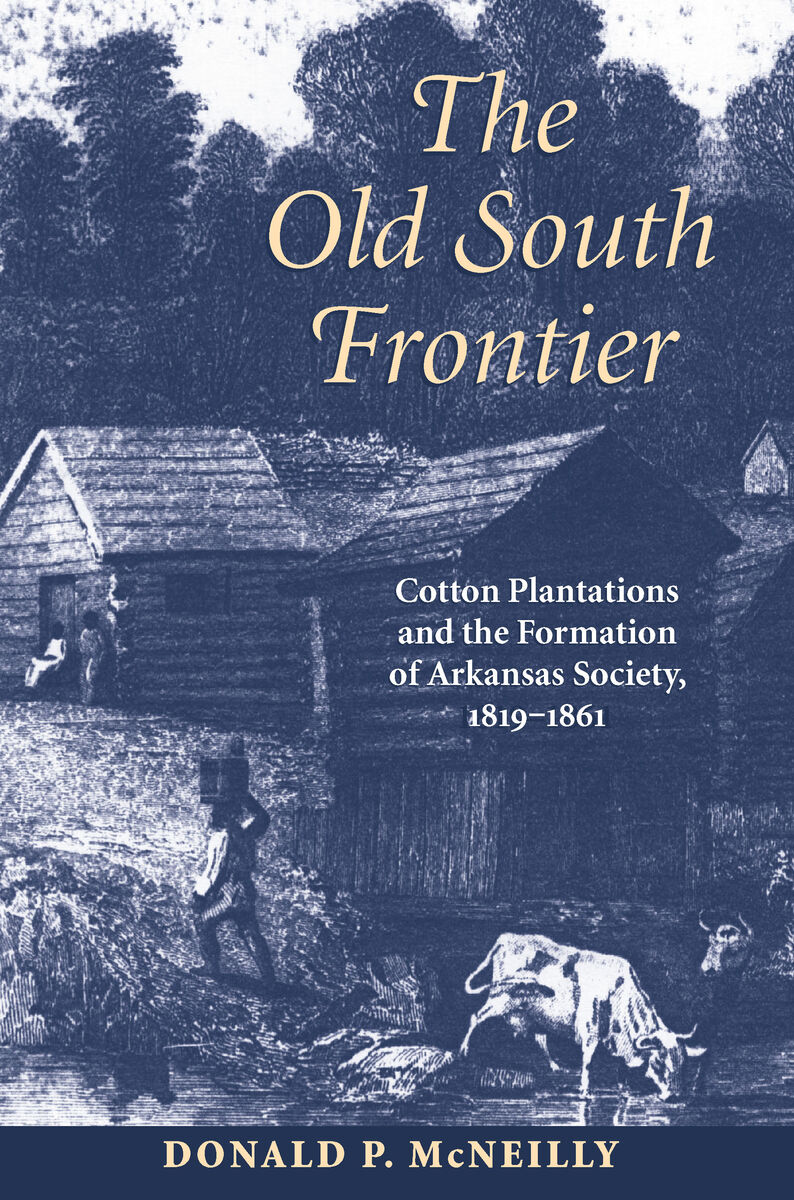The Old South Frontier: Cotton Plantations and the Formation of Arkansas Society, 1819–1861
University of Arkansas Press, 2000
eISBN: 978-1-61075-704-1 | Cloth: 978-1-55728-619-2
Library of Congress Classification F411.M144 2000
Dewey Decimal Classification 976.703
eISBN: 978-1-61075-704-1 | Cloth: 978-1-55728-619-2
Library of Congress Classification F411.M144 2000
Dewey Decimal Classification 976.703
ABOUT THIS BOOK | AUTHOR BIOGRAPHY | TOC | REQUEST ACCESSIBLE FILE
ABOUT THIS BOOK
In this deeply researched and well-written study, Donald P. McNeilly examines how moderately wealthy planters and sons of planters immigrated into the virtually empty lands of Arkansas, seeking their fortune and to establish themselves as the leaders of a new planter aristocracy west of the Mississippi River. These men, sometimes alone, sometimes with family, and usually with slaves, sought the best land possible, cleared it, planted their crops, and erected crude houses and other buildings. Life was difficult for these would-be leaders of society and their families, and especially hard for the slaves who toiled to create fields in which they labored to produce a crop. McNeilly argues that by the time of Arkansas's statehood in 1836, planters and large farmers had secured a hold over their frontier home, and that between 1840 and the Civil War, planters solidified their hold on politics, economics, and society in Arkansas. The author takes a topical approach to the subject, with chapters on migration, slavery, non-planter whites, politics, and the secession crisis of 1860–1861. McNeilly offers a first-rate analysis of the creation of a white, cotton-based society in Arkansas, shedding light not only on the southern frontier, but also on the established Old South before the Civil War.
See other books on: Arkansas | Cotton farmers | Formation | Plantation life | Social classes
See other titles from University of Arkansas Press






























